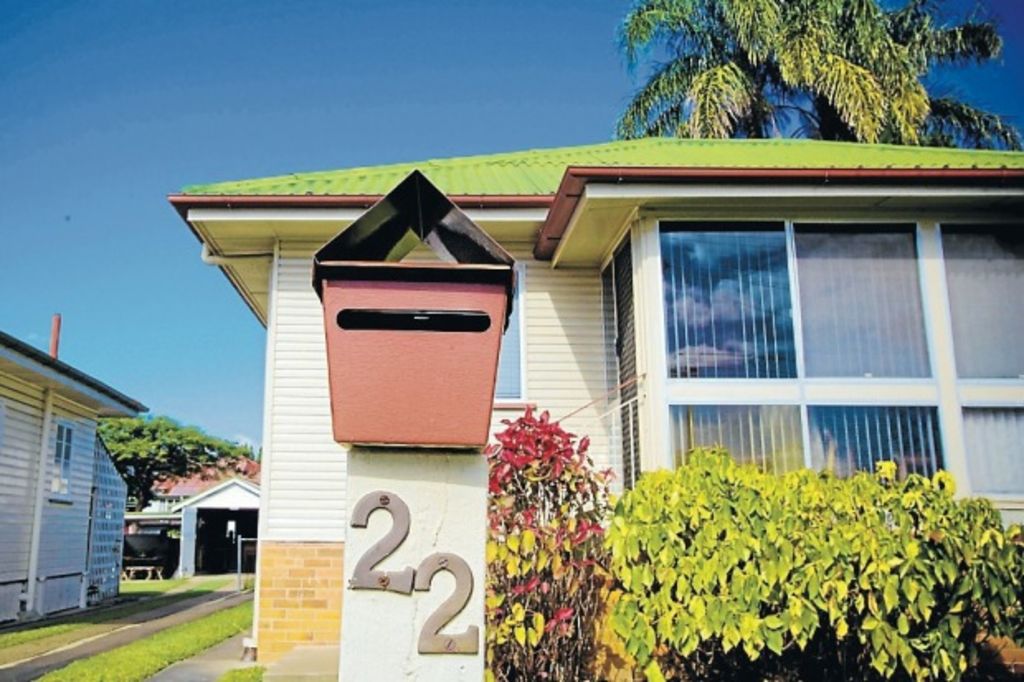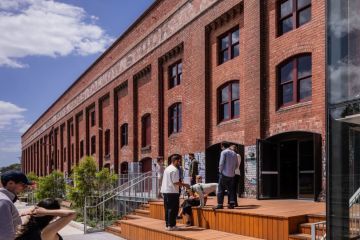10 ways to pay off a million-dollar mortgage faster

As Sydney property prices skyrocket and so many people are buying investment properties, there’s been a big jump in the number of people struggling to pay off a million-dollar mortgage.
Mortgage Choice spokeswoman Jessica Darnbrough said in the past two years they have seen “more than 50 per cent growth in $1 million mortgages in the Sydney area”.
From flogging car spots to opening your home to backpackers, here are 10 creative ways Sydneysiders are paying down their debts.
1. Rent out a room on Airbnb

Wally Salinger is earning $80,000 a year using Airbnb. Photo: Fiona Morris
Despite the ambiguity of council laws, more than 10,000 Sydney home owners are now renting out rooms and entire houses on Airbnb.
When Wally Salinger was made redundant he was left with a decision to either “sell the house or find a way of paying a million-dollar mortgage off”.
He’s now earning $80,000 a year by opening up his Annandale home to everyone from backpackers to delegates from last week’s Hillsong convention.
Although he’s currently fighting a fine from Leichhardt Council, the majority of “hosts” find it a great way to make a bit of money, particularly those with million-dollar mortgages.
“If you’ve got a Wi-Fi connection, you’re right to run your Airbnb,” Mr Salinger says.
NSW homeowners should approach council and consider local planning rules first as well as speak to an accountant about tax implications.
2. Share your house permanently
Renting out a room in more conventional ways can also help pay off your loan.
Sydney is the most expensive city for renters, with Pyrmont home owners able to charge $351.73 a week for a bedroom.
The average room rental cost is $275.44 a week, according to Flatmates.com.au.
You may also be able to split bills to make more savings.
3. Build and rent out a granny flat

A one-bedroom granny flat in Sydney’s Normanhurst. Photo: Granny Flat Solutions.
There’s been a huge increase in people building granny flats in their back yard since the NSW government introduced new laws encouraging secondary dwellings in 2009.
Co-owner of Granny Flat Solutions Michael Antoun says 60 per cent of his clients are from investors who build a granny flat on a property they don’t live in.
“So they might live in Eastwood but they’ve got an investment property in Blacktown or St Marys,” Mr Antoun says.
Many of those have million-dollar mortgages they’re trying to whittle down.
“They’re also trying to positive-gear their investment so they’re not paying any more money from their back pocket to pay off their interest, thus freeing up their capital to purchase a second or third investment property.”
4. Sell the car
Apart from your home, a car is often your next-most valuable asset – but unlike property, which appreciates each year, cars depreciate.
Along with proceeds from the sale, the NRMA calculator indicates homeowners who owna Volkswagon Tiguan could save $205.64 in weekly costs if they disposed of it and walked, ran, cycled or caught public transport to work instead.
5. Rent out your garage or car spot

Natalie Stathis happily pays $420 a week to use someone else’s car spot. Photo: Anna Kucera
Now that you’ve sold the petrol-guzzler, think of ways to capitalise on that car spot. Many million-dollar homes are in inner-city areas, so workers from outer suburbs are looking for a place to park the car and walk to work.
Homeowners who have a spare car spot can reap hundreds of dollars a month to help pay off the home loan.
Divvy Parking reported home owners making up to $90 a week on car spaces in prime locations during work hours.
Natalie Stathis recently told Fairfax Media that she happily pays $420 a month to use someone elses car spot in the CBD that she found on Divvy Parking.
Websites such as Parkhound or an advertisement on Gumtree can also help turn that car spot into money for the mortgage.
6. Rent out other spaces
As per above, space inside your house is valuable. Space Out says it can help homeowners earn more than $200 a month.
7. Tighten your budget
The proceeds from cutting your weekly spending can go towards the million-dollar mortgage, Mortgage Choice’s Ms Darnbrough said.
“To create a sensible budget, you have to make sure it factors in all of your regular spending – home and/or other loans, utility bills, medical expenses, memberships, grocery bills, insurance costs, etc,” she said.
Time also to re-evaluate luxuries such as the annual overseas holiday, cable TV, takeaway food and coffees. And swap your credit cards with “notoriously high” interest rates and use a debit card instead.
8. Look at your home loan
Continuing to pay the original repayment after the Reserve Bank cuts the official rate can save thousands.
“A 0.25 percentage-point reduction could pocket you $600 a year, or $18,000 over the course of your loan,” Finder.com.au spokeswoman Michelle Hutchison said.
Also consider refinancing. Smartline mortgage broker Kevin Lee says the difference between a 30-year $1 million loan at 4.5 per cent and 5 per cent is more than $300 a month.
If you can pay off a $1 million mortgage (at 4.5 per cent) over 25 years instead of 30 years you’ll pay $1,667,496 instead of $1,824,065 – a saving of $156,569.
9. Load in your tax refund
Don’t waste your tax refund on expensive luxuries, put it straight into the mortgage.
“You can either use it to pay off the principal or store it in your offset account and let it offset the interest on your loan,” Ms Darnbrough says.
The same applies to inheritances or bonuses.
10. Downsize
You could just bite the bullet and sell.
While the costs of selling and buying a smaller home can be substantial, your mortgage will be more manageable.
Do your sums and work out the benefit over the length of the loan term.
We recommend
States
Capital Cities
Capital Cities - Rentals
Popular Areas
Allhomes
More







